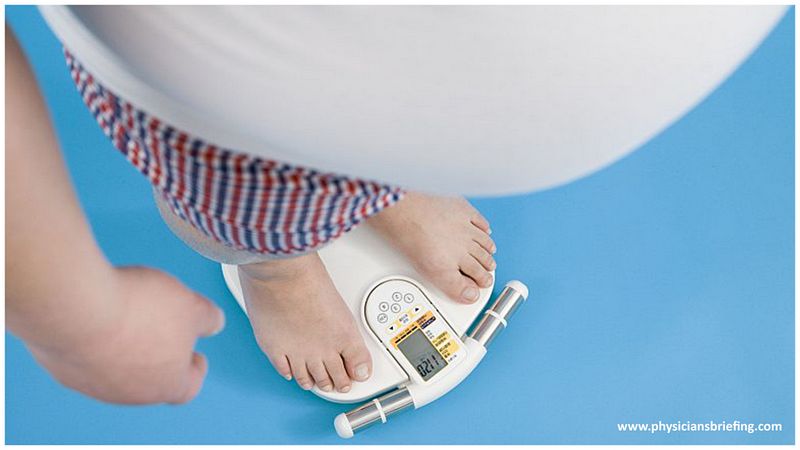Ongoing investigations have discovered weight is a hazard factor for getting genuinely sick with COVID-19, close by more seasoned age and constant wellbeing conditions.
It's some of the wellbeing conditions which we know increment the danger of serious ailment from COVID-19 are additionally connected with corpulence. These incorporate sort 2 diabetes, hypertension, coronary illness, and respiratory sickness.
Be that as it may, new research recommends heftiness autonomously is a solid indicator of extreme ailment, especially in those younger than 60.
This is concerning given 66% (67 percent) of the Australian grown-up populace has a weight list (BMI) in the overweight or fat range.
BMI is an individual's load in kilograms separated by the square of their stature in meters (kg/m²). While it's a defective measure for a distinctive individual, BMI is valuable in contrasting wellbeing and weight over a populace and between gatherings.
For grown-ups, overweight is a BMI of 25 or above, yet under 30kg/m². For a lady of normal tallness (162cm), this would be identical to a load of 66kg or above, and for a man of normal stature (176cm), a load of 78kg or above.
Heftiness is characterized as a BMI of 30kg/m² or above. This likens to a load of 79kg or more for a lady and 93kg or more for a man, both of normal stature.
THE EVIDENCE
One examination from China taking a gander at information from 112 patients announced overweight and stoutness were right around multiple times increasingly common in patients with COVID-19 who passed on (88 percent) contrasted with the individuals who endure (19 percent).
Starter information from another Chinese examination including 383 patients, even though not yet peer looked into, proposes overweight or corpulence dramatically increased the danger of creating serious pneumonia because of COVID-19, especially in men.
Specialists in France discovered practically 50% of 124 patients admitted to an emergency unit with COVID-19 had a BMI in the large range. This was almost twofold the pace of a correlation gathering of ICU patients with serious intense respiratory infection disconnected to COVID-19.
Further, the requirement for mechanical ventilation expanded with expanding BMI.
A UK observation investigation of patients admitted to concentrated consideration with COVID-19 revealed just about 75% (75 percent) of the 6,720 patients had a BMI in the overweight or corpulent range, which is more noteworthy than the populace commonness of overweight and weight in grown-ups in the UK (around 67 percent).
Albeit a portion of these examinations calculated in interminable conditions when detailing their outcomes, it's hard to isolate the entirety of the conditions related to corpulence that may add somewhat to the less fortunate results.
So almost certainly, a few – however not all – of the expanded danger of extreme COVID-19 related with corpulence could be because of individuals having other incessant conditions.
Youngsters
It appears weight may have a greater amount of an effect on the seriousness of COVID-19 in youngsters, as per two investigations from New York.
One investigation of 3,615 individuals who tried positive for COVID-19 found those matured under 60 years with a BMI of somewhere in the range of 30 and 34 were twice as prone to be admitted to ICU contrasted with patients with a BMI of under 30.
This probability expanded to 3.6 occasions in those patients with a BMI of 35 or more prominent.
WHY THE GREATER RISK?
Taken together, the above information proposes there is a relationship among heftiness and progressively serious COVID-19 disease, especially in those with a BMI of 35 or more noteworthy.
The US Centers for Disease Control and Prevention (CDC) presently records "extreme stoutness" as a hazard factor for genuine COVID-19 ailment.
We don't know precisely what job stoutness plays in the seriousness of COVID-19 side effects. In any case, the instruments are probably going to be multifaceted, especially since weight itself is the consequence of an intricate collaboration between hereditary, hormonal, conduct, social, and ecological elements.
We realize corpulence can significantly affect lung work. Overabundance weight around the mid-region can pack the chest, making it progressively hard for the stomach to move and the lungs to grow and take in air.
This can add to bring down degrees of oxygen in the blood, which may worsen the indications of COVID-19.
We additionally realize heftiness brings about an incessant condition of irritation which can hinder the body's safe reaction. This might make it progressively hard for the body to battle coronavirus.
Would it be a good idea for me to BE WORRIED?
The short answer is no. On the off chance that your body weight is over the sound range, these outcomes ought not to because of frenzy or driving force to participate in crash diets to lessen COVID-19 hazard.
While the information suggests corpulence is a hazard factor for a progressively serious ailment, it's initial days in the life of COVID-19 and we need more research before we can say what's happening.
The most critical thing you can do to bring down your hazard is to follow your government's rules.
These limitations can be testing and may prompt decreased physical movement and eating for comfort or to ease fatigue, conceivably bringing about weight gain.
On the off chance that you wind up with additional time during the pandemic, you may think that it's accommodating to see it as a chance to settle on sound decisions and develop new propensities to decrease your danger of sickness when all is said in done and to upgrade wellbeing and prosperity going ahead.

 Studies worldwide show a link between severe COVID-19 with obesity and other chronic conditions, say observers.
Studies worldwide show a link between severe COVID-19 with obesity and other chronic conditions, say observers.

































